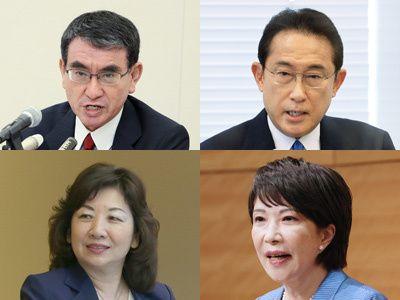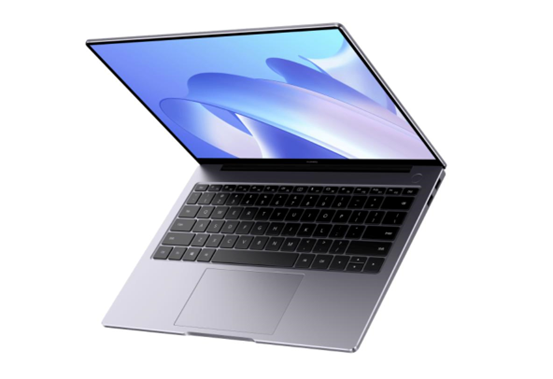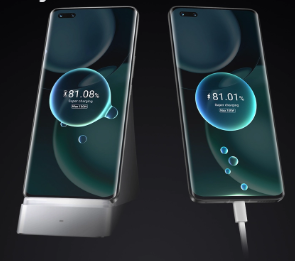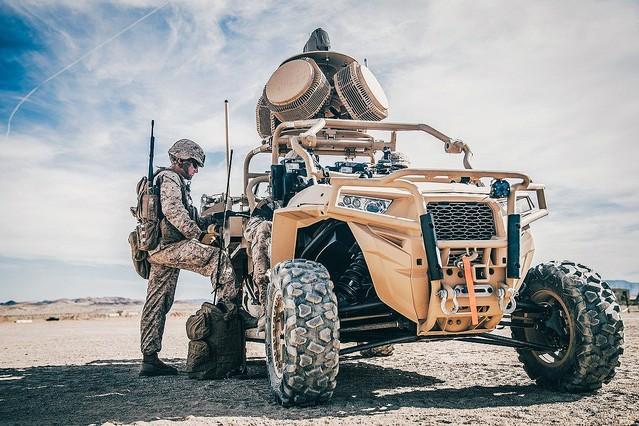U.S. Deploying Intermediate-Range Missiles in Japan, Takaichi ``Necessary''
Regulatory Reform Minister Taro Kono (58), former Policy Research Council Chairman Fumio Kishida (64), former Internal Affairs and Communications Minister Sanae Takaichi (60), and Acting Secretary-General Seiko Noda (61), who ran for the LDP presidential election. ) will appear live on Fuji TV's "Sunday News THE PRIME" (Sundays from 7:30 am to 8:55 am) on the 19th, with themes such as defense against North Korea and China, wage increases, and pensions. argued fiercely.
Among these, North Korea launched a ballistic missile on the 15th and is presumed to have dropped it into Japan's EEZ (Exclusive Economic Zone). Necessary deterrence” was discussed.
Mr. Takaichi emphasized that "the deployment of precision-guided missiles is absolutely necessary" and appealed for "introduction of unmanned aerial vehicles necessary for reconnaissance" and "strengthening defense capabilities using electromagnetic waves". He also raised the question, ``How quickly can we neutralize enemy bases? It is technically possible to jam satellites.
Kishida pointed out, "It is important to constantly brush up the missile interception posture and the Aegis posture." He stressed the need for "deterrence, including the ability to attack enemy bases, in preparation for not only the first attack but also the second attack." Mr. Kono and Mr. Noda appealed for "strengthening the ability to collect information."
The program also discusses deterrence against China, which is increasing its military power. Taking up the fact that the United States is considering deploying intermediate-range missiles to the first island chain linking Okinawa and Taiwan, he introduced an expert's opinion that "it is expected to be deployed in Japan and other countries." In response to this, when the four candidates became prime ministers, they asked whether they would accept the deployment of intermediate-range missiles to Japan if there was an official request from the United States.
Only one of the four raised his hand to this question, Mr. Takaichi. Takaichi said, "This medium-range missile is absolutely necessary. It is necessary to protect Japan. Rather, I would like to actively ask for it."
Kishida said, "I'm not denying it at all," but said, "I will refrain from saying whether I agree or disagree without hearing concrete proposals for Japan."
Mr. Noda said, ``It is extremely dangerous to talk forward and to have conclusion-oriented discussions.
Mr. Kono said, ``It is meaningless to discuss whether to accept or not to accept before the division of roles between Japan and the United States is decided. "This is not a discussion that will lead to stability between Japan, the United States, and China." In response, Takaichi said, "It's not about bravely saying 'do it, do it.' It's absolutely necessary to protect the lives and territory of the Japanese people."
It has been pointed out that the intermediate-range missiles that the United States is considering deploying may be equipped with nuclear weapons. Regarding whether or not to review the three non-nuclear principles of not allowing the introduction of nuclear weapons, he indicated that he would not consider any of the four candidates.
However, when Mr. Kono attended the Japan-U.S. debate in 2010 when he was director of the Liberal Democratic Party's International Bureau, he said that "nuclear sharing," in which the United States and Japan jointly operate U.S. nuclear weapons in the event of an emergency, is one of the options. It is reported that he expressed his recognition that this was the case, and said that he should change the Three Non-Nuclear Principles as a prerequisite.
When the program caster asked, "Have you changed your mind?", Mr. Kono didn't answer the question directly. No. We must discuss how the international community should deal with China."
Below, the main exchanges in the program.
Toshiyuki Matsuyama Caster (Fuji TV Political Director / Commentator): How to defend against North Korean missiles in a situation where North Korea is launching cruise missiles and ballistic missiles that draw irregular trajectories one after another. In addition to that, the focus is also on the problem of deterrence, how to prevent it from hitting. What kind of deterrence is needed to prevent North Korea from firing missiles?
Mr. Kono: What Japan needs now is strengthening its information gathering capabilities. To have the ability to constantly monitor what is happening in North Korea. It is imperative that the Japan-U.S. alliance properly establishes deterrence against North Korea and that the other side has such capabilities.
Mr. Kishida: It is natural to improve the ability to collect information. It is also important to constantly brush up Japan's missile interception posture and Aegis posture. North Korea is said to have 500-600 missiles that can reach Japan. It is also conceivable to prepare not only the first attack but also the second attack, including the so-called enemy base attack capability, as a deterrent.
Mr. Takaichi: There is nothing we can do about not fighting back even if we are hit, so the deployment of precision-guided missiles is an absolute must. How to speed up the neutralization of enemy bases. It is technically possible to jam (artificial) satellites. Whether or not to accept this as a duty of the Self-Defense Forces. We also need a drone. In particular, the introduction of drones necessary for reconnaissance and the like. Electromagnetic waves can also be used for defense, but there is a tendency among universities to not accept them as defense research. Changing this is very important.
Mr. Noda: On the day (15th), there was an emergency board meeting at the party headquarters. Cruise missile, Tomahawk class (flight range) 1,500km. It's a very serious issue. Unfortunately, it is based on North Korea's (announced) information, and we will receive information from the United States and South Korea and scrutinize it. Japan's lack of intelligence gathering capability is the biggest problem, and it is a problem even before deterrence. We will work hard on that.
Yaeko Umezu (announcer of Fuji TV): In addition to the threat of North Korea, the United States, which has a growing sense of crisis about China's military buildup, announced in March this year the budget request for the Indo-Pacific Command to Okinawa. He wrote that a ground-based missile network should be built along the first island chain connecting Japan and Taiwan. Yoji Koda, former commander of the Self-Defense Fleet, said, "The U.S. military is envisioning the deployment of intermediate-range missiles with Japan and other countries in mind."
Matsuyama Caster: Regarding intermediate-range missiles that the US military is said to be considering deploying, if there is an official request from the US in the future, will Japan accept it? If you decide to accept it when you become prime minister, please raise your hand. Mr. Takaichi, you raised your hand first, but for what purpose did you raise your hand?

Mr. Takaichi: This medium-range missile is absolutely necessary. This is necessary to protect Japan. A year ago, US Secretary of Defense Mark Esper said that it would be deployed in the Asian region. Rather, I would like to ask you to be proactive. However, the United States is currently developing long-range missiles, and with them, it will be possible to cover almost all of China's air bases. It would be best if it could be domestically produced. I think that cooperation with JAXA (Japan Aerospace Exploration Agency) will be necessary.
Matsuyama Caster: I think the US is developing medium-range missiles to counter the (China's) medium-range missiles called Carrier Killer and Guam Killer. Mr. Kono, who also served as Minister of Defense, asked how he would respond if asked to deploy intermediate-range missiles.
Mr. Kono: When considering deterrence, we must also consider whether Japan can pull the trigger with its own finger. We must consider how to increase the deterrence of the Japan-US alliance as a whole, and how the international community can exert pressure on China to unilaterally change the status quo. Placing a missile on Japan that only the United States has its finger on the trigger does not increase Japan's deterrence. What kind of deterrence do you envision for China? This discussion will not start until a more careful and thorough discussion is made, and a clear division of roles between Japan and the US on what to do with the Japan-US alliance and what Japan will do. This missile is not the only thing Japan has to do. What will Japan do when it tries to defend the Nansei Islands, or when China tries to pass through the Nansei Islands? How can we convey Japan's capabilities as a message to China? This is not just a matter of shouting bravely. In terms of deterrence, it is important to send a solid message between the Japan-US alliance and China to stabilize the situation. The ability of the opponent is neutralized, and it becomes a factor of destabilization. With that in mind, Japan and the United States need to thoroughly discuss how to build deterrence.
Toru Hashimoto (regular commentator, former mayor of Osaka, lawyer): Mr. Takaichi is not premised on handing over all the trigger rights to the United States, but of course it is premised on going through various processes. I think it's becoming Is he an absolute refusal to accept intermediate-range missiles, even if he negotiates that Japan secure the right to pull the trigger?
Mr. Kono: It is pointless to put US intermediate-range missiles in Japan and discuss whether or not to put them in before it is decided what kind of role will be divided. It is not a discussion that will lead to stability between Japan and China, or between Japan, the United States, and China, as it will only please those who bravely say, "Do it, do it."
Mr. Takaichi: It's not about bravely saying, "Do it, do it." This is absolutely necessary to protect the lives and territory of the Japanese people. Japan is under civilian control and does not mean that the United States should pull the trigger. The rules should be thoroughly discussed when it is decided to introduce them.
Mr. Hashimoto: Did Mr. Kishida also talk about considering which side (Japan and the US) should have the right to trigger the intermediate-range missile, and how to proceed?
Mr. Kishida: I'm not going to deny it at all, but even if it's a medium-range missile, what kind of loading capacity it has and where it will be deployed will change the public's understanding a lot. Regarding deployment to the first island chain, I have to refrain from saying whether I agree or disagree without hearing what kind of concrete proposal Japan has.
Mr. Noda: Every time North Korea or China takes action, it is extremely dangerous to talk forward and discuss conclusions. Deterrence is not just about the military, but rather precedes it with best diplomacy. After the end of the war, Japan pledged not to fight and is a pacifist. Deterrence starting with armaments is unthinkable. Don't talk hypothetically.
Umezu Caster: Regarding medium-range missiles, according to Mr. Koda, there is a possibility that they may be equipped with nuclear weapons. This violates the Three Non-Nuclear Principles of "Do not bring in."
Matsuyama Newscaster: Should we consider reviewing the three non-nuclear principles of "do not bring in"? I would like to see those who would consider revising the bill if they become Prime Minister should raise their hands. Are you saying that you haven't thought about it that far?
Mr. Takaichi: Basically, as a strategy of the United States, it is a principle not to disclose whether the United States has brought nuclear weapons or not. Partly due to the issue of Diet resolutions, it is quite difficult, but Japan is under the US nuclear umbrella, and when a crisis actually approaches, it is unthinkable that Japan will die in battle without making full use of it.
Mr. Hashimoto: It has been a kind of deception of Japanese politics that they do not know whether the United States will have nuclear weapons. If you don't know, you may be brought in before you know it. The fact that the situation here is clearly different from when the Three Non-Nuclear Principles were implemented in 1967 is a contradiction if we do not deceive ourselves and say that we will consider reviewing the deployment of intermediate-range missiles.
Mr. Takaichi: Including whether or not to load a nuclear warhead, this is a topic that should be carefully considered when deploying missiles. As a strategy of the United States, I think that it is a story that will not be shown on the table after all.
Matsuyama Newscaster: At the 2010 US-Japan debate, Mr. Kono said that the review of the Three Non-Nuclear Principles should also be discussed. It seems that he also mentioned the concept of "nuclear sharing" between Japan and the United States, but did he change his mind?
Mr. Kono: In the midst of China's military expansion, the Japan-US alliance and the international community must work together to put pressure on China and unilaterally change the status quo. It is not a situation in which Japan and China can do something bilaterally just by expanding China's military capabilities unilaterally. Japan's military budget is 5 trillion yen, while China's is 20 trillion yen. At least that much of the military budget is being used every year just for publicity. We have to discuss how to deal with China in the international community.
Matsuyama Caster: Mr. Kishida is from Hiroshima. I think she's very sensitive to the nucleus. What is your stance on the review of the Three Non-Nuclear Principles?
Mr. Kishida: I don't think about reviewing the three non-nuclear principles. Under such circumstances, the security environment must be considered. I think it is quite difficult to revise the Three Non-Nuclear Principles in terms of public understanding. Japan's discussion of this while appealing to North Korea to give up its weapons of mass destruction sends the wrong message.
Mr. Hashimoto: During the US-Soviet Cold War, the Soviet Union deployed intermediate-range ballistic missiles to Europe, and Europe responded by deploying missiles to the Soviet Union. In the final stage of the mutual arms race, they moved to the Intermediate-Range Nuclear Forces (INF) Treaty. While North Korea, China, and Russia are expanding their armaments with nuclear weapons, can Japan really protect the stability of the Far East region without considering medium-range missiles and nuclear weapons at all?
Mr. Kishida: Nuclear power created a state of peace through the balance of power. There is such a history, but the situation in Asia is completely different from that time. Japan will explore its own non-nuclear and nuclear abolition path. I believe that this is the position of Japan, the only country to have suffered atomic bombings during the war.
Matsuyama Caster: Is Mr. Noda also cautious about reviewing the three principles?
Noda: No (review). Just like Mr. Kishida said. Hiroshima, Nagasaki, and Japan are the only countries in the world to have suffered atomic bombings. We have to keep it tight. That's all.
[Click here for related articles] Liberal Democratic Party Presidential Election 2021








